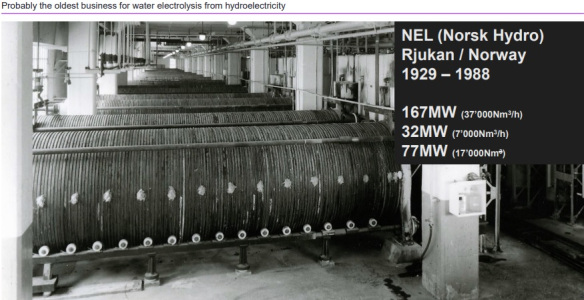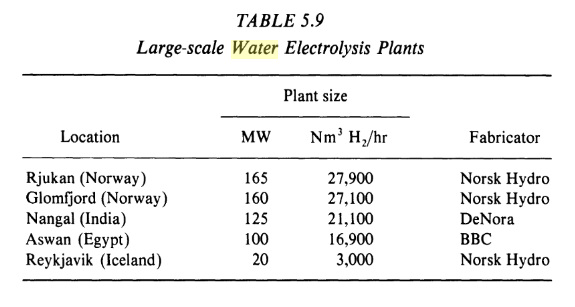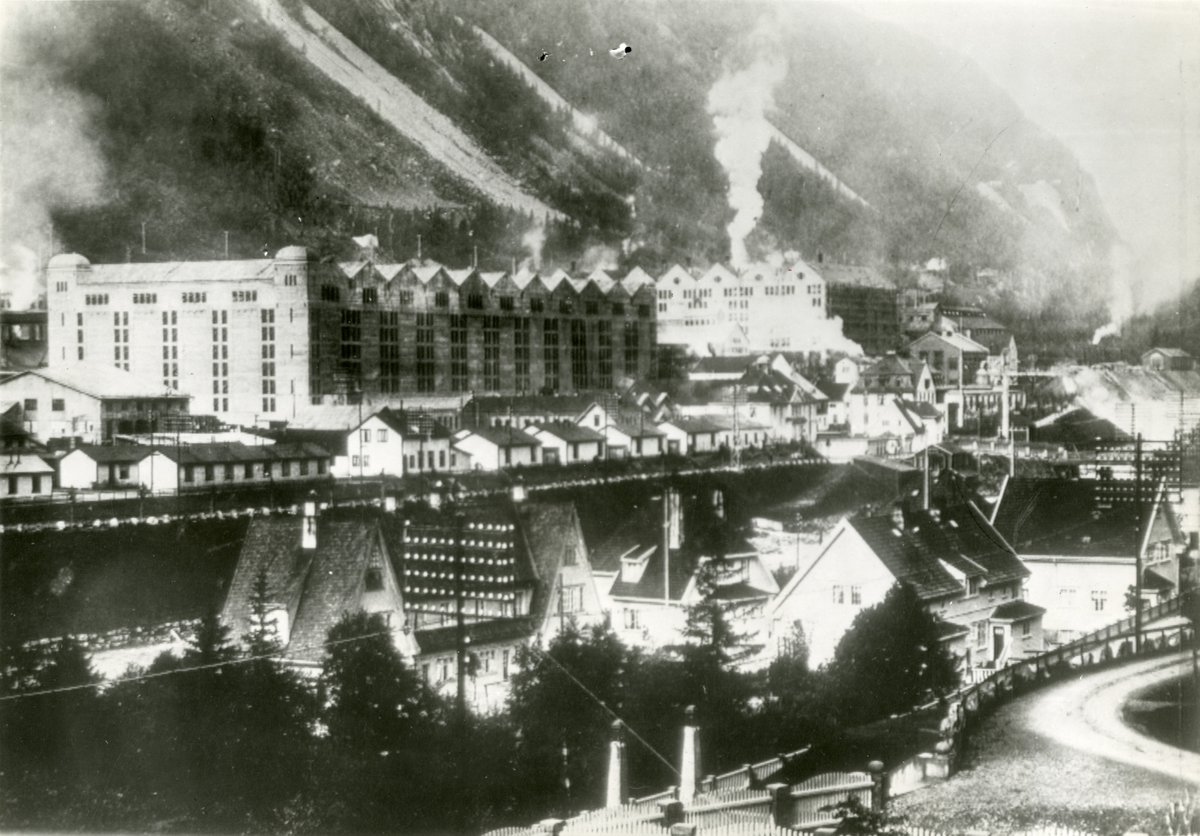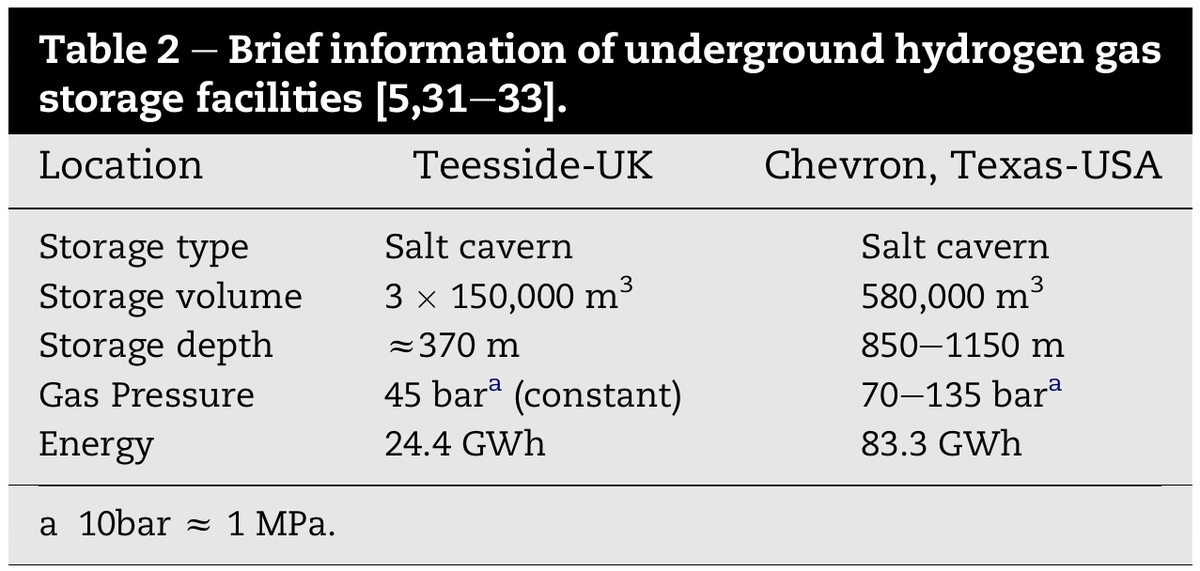Despite the current hype, there's nothing new about electrolytic hydrogen.
- 100 MW electrolysers since late 1920s for fertiliser and heavy water
- 100 GWh salt cavern storage since 1960s
- 4500 km hydrogen pipelines today
What was missing was abundant low cost power.
- 100 MW electrolysers since late 1920s for fertiliser and heavy water
- 100 GWh salt cavern storage since 1960s
- 4500 km hydrogen pipelines today
What was missing was abundant low cost power.
From 1920s-1970s, 100+ MW water electrolysers were built across world to meet demand for ammonia for fertiliser.
Prerequisite: cheap power from hydro dams.
All were dismantled as other power demand grew and fossil gas became available to make ammonia.
https://books.google.de/books?id=bf3lBwAAQBAJ&lpg=PA121&dq=united%20states%20electrolyzers%20heavy%20water&pg=PA122#v=onepage&q&f=false
Prerequisite: cheap power from hydro dams.
All were dismantled as other power demand grew and fossil gas became available to make ammonia.
https://books.google.de/books?id=bf3lBwAAQBAJ&lpg=PA121&dq=united%20states%20electrolyzers%20heavy%20water&pg=PA122#v=onepage&q&f=false
Electrolysis was also the means of making heavy water (D2O), a neutron moderator, from its discovery in the 1930s until the GS process replaced it in the mid-1940s.
Heavy water was crucial for making the atomic bomb.
This made electrolysis of great military importance in WWII.
Heavy water was crucial for making the atomic bomb.
This made electrolysis of great military importance in WWII.
History buffs can read more about the US heavy water production program here:
https://en.wikipedia.org/wiki/P-9_Project
and about Allied attacks on the Norwegian heavy water plant when it was under Nazi occupation:
https://en.wikipedia.org/wiki/Norwegian_heavy_water_sabotage
See also:
https://www.atomicheritage.org/history/heavy-water-reactors
https://en.wikipedia.org/wiki/P-9_Project
and about Allied attacks on the Norwegian heavy water plant when it was under Nazi occupation:
https://en.wikipedia.org/wiki/Norwegian_heavy_water_sabotage
See also:
https://www.atomicheritage.org/history/heavy-water-reactors
Hydrogen has been stored underground in salt caverns at petrochemical plants since the 1960s. Two large multi-GWh facilities operate in the UK and in Texas:
https://doi.org/10.1016/j.ijhydene.2012.07.111
https://doi.org/10.1039/C8EE01157E
https://doi.org/10.1016/j.ijhydene.2012.07.111
https://doi.org/10.1039/C8EE01157E
There are around 4500 km of hydrogen pipelines operational worldwide, so this isn't exactly an unknown quantity either: https://twitter.com/nworbmot/status/1196086086193287168
So what's the lesson?
- Hydrogen technology is there for when we need it.
- Electrolytic hydrogen will only make economic sense with abundant low-cost power, as it has in the past.
- Hydrogen technology is there for when we need it.
- Electrolytic hydrogen will only make economic sense with abundant low-cost power, as it has in the past.
Opinion: In short-term we should focus on energy efficiency, displacing fossil electricity generation with low-emission sources, and electrifying other sectors before scaling up water electrolysis in a big way...
but we may need electrolytic hydrogen in the medium/long-term to decarbonise some chemical sectors, high-density fuels, some industry demand and some backup electricity/heat.
It makes sense to push R&D and niche electrolysis in the meantime.
Enjoy your weekend!
It makes sense to push R&D and niche electrolysis in the meantime.
Enjoy your weekend!

 Read on Twitter
Read on Twitter






